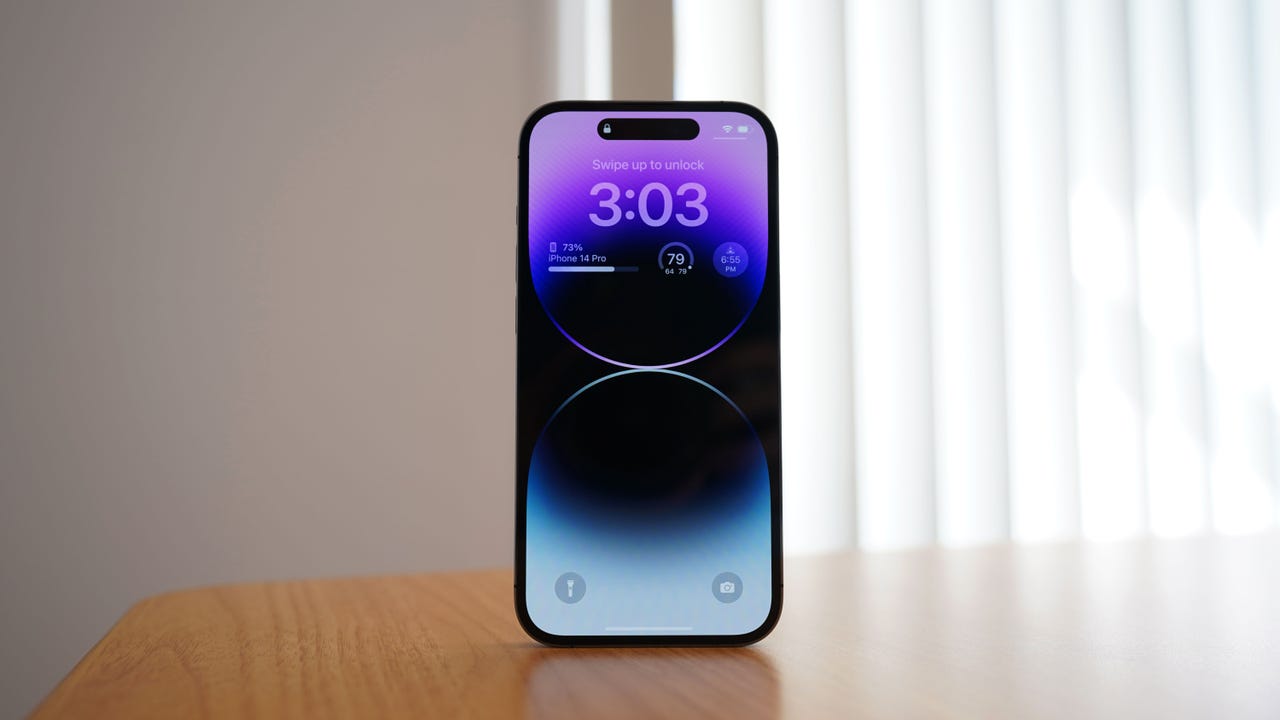































 June Wan/
June Wan/ Ask anyiPhone owner what they want, and the most common response won't be a thinner and lighter handset, a better camera, or a display that's so sharp that you'll never want to look at the real world again. Top of most iPhone owner's want list is, and always has been, a bigger battery.
Also: iPhone overheating? Here are 8 potential causes and their solutions
Well, a bigger battery could be coming to the iPhone 15 if the rumor being reported byITHome(via9to5Mac) turns out to be true. In fact, if the details are accurate, this is a massive jump.
A battery with a bigger capacity means a battery that's physically bigger, roughly in proportion to the capacity increase. Since Apple is unlikely to want to make the iPhone 15 much bigger than the existing models, it means that Apple's found a way to free up space inside the iPhone 15.
Also: The best MagSafe battery packs right now
Anyone who has torn down an iPhone will tell you that it's pretty crammed in there, so how could Apple free up space for a bigger battery? A thinner display would be one way, and tweaking the chassis to free up a free cubic millimeters of room would be another way, as might making the new iPhone a little thicker -- and by little, I mean fractions of a millimeter thicker.
So, this bigger battery, along with what we can expect will be a more efficient A17 Bionic processor built using a 3-nanometer manufacturing process powering the iPhone 15 Pro and Pro Max models (it's likely that the iPhone 15 and 15 Plus will use the A16 Bionic chip that currently powers theiPhone 14 Pro and Pro Max models) will mean longer runtime between recharges.
Also: Battery bad after installing iOS 16.5? Try these 7 tips
But there's another benefit that comes from a bigger battery, and that's reduced battery wear.
Every time a lithium ion battery is recharged, it suffers some internal chemical wear. This is normal and there's nothing that can be done about it, we can't change the laws of physics. Many iPhone owners become concerned about battery wear when they notice a drop in their battery health score.
The bigger the capacity of a battery, the longer a charge will last, which in turn means few recharge cycles per year, which means less wear on the battery.
Also: Here's what Apple doesn't want you to know about your iPhone's battery
This should -- and I want to use this "should" rather loosely because we've ventured deep into speculation based off of a few numbers on a Chinese website -- mean that a battery will have a longer lifespan before needing to be replaced.
All of which is better for the consumer, and the planet.
 Hot Tags :
Tech
Our process
Smartphones
iPhone
Hot Tags :
Tech
Our process
Smartphones
iPhone